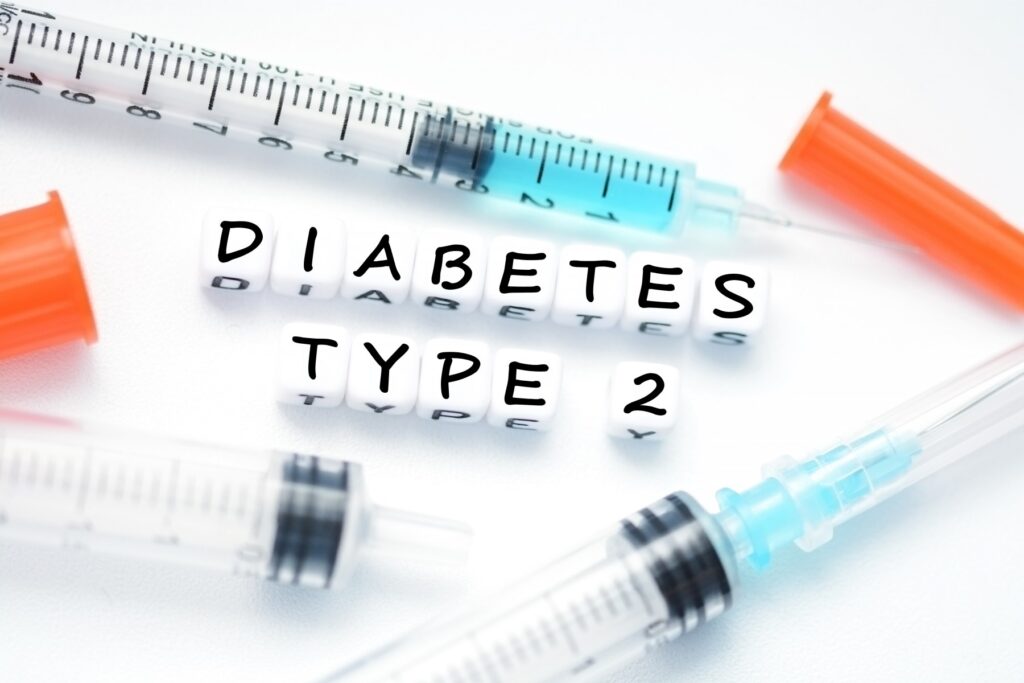Living with type 2 diabetes requires a multifaceted approach to management, and as the journey progresses, individuals may find themselves considering insulin therapy as a crucial component of their treatment plan. This blog aims to shed light on the intricacies of insulin therapy for type 2 diabetes, providing valuable insights, guidance, and empowering information to those navigating this aspect of their health journey.
Contents
Can Insulin Therapy Be Used For Type 2 Diabetes?
 Yes, insulin therapy can be a crucial and effective treatment option for individuals with type 2 diabetes. While type 2 diabetes is often initially managed through lifestyle modifications, oral medications, and other injectable medications, some individuals may eventually require insulin to achieve and maintain optimal blood sugar control. Insulin is a hormone that helps regulate blood sugar levels by allowing cells to absorb glucose from the bloodstream.
Yes, insulin therapy can be a crucial and effective treatment option for individuals with type 2 diabetes. While type 2 diabetes is often initially managed through lifestyle modifications, oral medications, and other injectable medications, some individuals may eventually require insulin to achieve and maintain optimal blood sugar control. Insulin is a hormone that helps regulate blood sugar levels by allowing cells to absorb glucose from the bloodstream.
In type 2 diabetes, the body either doesn’t produce enough insulin or becomes resistant to its effects. And, leading to elevated blood sugar levels. Introducing exogenous insulin through therapy helps overcome these challenges and ensures that cells receive the necessary signals to absorb glucose, thus managing blood sugar levels effectively.
The decision to initiate insulin therapy in type 2 diabetes is typically made based on individualized assessments. Thus, considering factors such as HbA1c levels, blood glucose monitoring results, and the effectiveness of previous treatments. It’s important to note that insulin therapy doesn’t signify a failure in managing diabetes. But rather a necessary and proactive step to maintain overall health and prevent complications associated with uncontrolled blood sugar.
When Should Type 2 Diabetics Start Insulin?
The decision to start insulin therapy for individuals with type 2 diabetes is based on a personalized assessment by healthcare professionals. Several factors contribute to the decision-making process:
- Inadequate Blood Sugar Control: If blood glucose levels remain consistently high despite other treatments, insulin therapy may be initiated to better manage and regulate blood sugar.
- HbA1c Levels: Elevated HbA1c levels (a measure of average blood sugar levels over the past 2-3 months) may indicate a need for more intensive treatment, including insulin.
- Progression of Diabetes: Type 2 diabetes is a progressive condition, and over time, the pancreas may produce less insulin or the body may become more resistant to its effects. As a result, insulin therapy might become necessary to supplement the body’s insulin production.
- Individual Health Status: Other health conditions, lifestyle factors, and an individual’s overall health status are taken into account. For example, if someone experiences rapid weight loss, has difficulty managing blood sugar with existing treatments, or faces surgery or illness, insulin therapy may be recommended.
- Patient Preferences: The patient’s willingness and ability to comply with the regimen, as well as their preferences and lifestyle, are important considerations. Some individuals may prefer the simplicity and effectiveness of insulin therapy.
Individuals with type 2 diabetes must have open and ongoing discussions with their healthcare team. The decision to start insulin is a collaborative one. So, healthcare providers work with patients to ensure that the chosen treatment plan aligns with their specific needs and goals for diabetes management.
How Does Insulin Therapy For Type 2 Diabetes Work?
 Insulin therapy for type 2 diabetes works by supplementing the body’s insulin supply or enhancing the effectiveness of existing insulin. In type 2 diabetes, the body either doesn’t produce enough insulin or becomes resistant to its effects, leading to elevated blood sugar levels. Here’s how insulin therapy works for type 2 diabetes:
Insulin therapy for type 2 diabetes works by supplementing the body’s insulin supply or enhancing the effectiveness of existing insulin. In type 2 diabetes, the body either doesn’t produce enough insulin or becomes resistant to its effects, leading to elevated blood sugar levels. Here’s how insulin therapy works for type 2 diabetes:
- Supplementing Insulin Levels
For some individuals with type 2 diabetes, the pancreas may produce insufficient insulin. In such cases, insulin therapy introduces exogenous (external) insulin into the body to compensate for the deficiency. This can be delivered through injections or an insulin pump.
- Enhancing Insulin Sensitivity
In other cases, the body may still produce insulin, but cells become resistant to its effects. Insulin therapy may involve medications that improve insulin sensitivity, allowing existing insulin to work more effectively. These medications may include injectable drugs like GLP-1 receptor agonists or oral medications.
- Types of Insulin
Insulin therapy includes different types of insulin, each with specific characteristics. Rapid-acting insulin starts working quickly and is taken with meals to manage post-meal blood sugar spikes. Short-acting insulin is taken before meals, providing coverage for a longer duration. Intermediate-acting and long-acting insulin are used to provide basal (background) insulin throughout the day and night.
- Customization of Regimen
Insulin therapy is highly individualized. Healthcare providers work with individuals to tailor insulin regimens based on factors such as lifestyle, blood sugar patterns, and preferences. Some people may require a combination of insulin types to mimic the body’s natural insulin secretion and maintain stable blood sugar levels.
- Monitoring and Adjustments
Regular monitoring of blood sugar levels is crucial in insulin therapy. Patients learn to adjust insulin doses based on factors such as food intake, physical activity, and daily routines. Periodic adjustments to the insulin regimen may be made in collaboration with healthcare providers to optimize blood sugar control.
Insulin therapy for type 2 diabetes is an important tool. Hence, helping individuals achieve and maintain target blood sugar levels to prevent complications associated with uncontrolled diabetes. Individuals need to work closely with their healthcare team to develop a personalized insulin regimen. Also, receive ongoing support and education.
How Much Insulin Should I Take If My Sugar Is 300?
The amount of insulin needed to lower blood sugar from 300 mg/dL (milligrams per deciliter) depends on various factors. Typically, rapid-acting insulin is administered to address elevated blood sugar levels. However, it’s crucial to emphasize that specific dosages should be determined in consultation with a healthcare professional. A common approach is to use a correction factor or insulin sensitivity factor. This is a formula that helps determine how much one unit of insulin lowers blood sugar.
For example, if an individual’s correction factor is 50 and their blood sugar is 300 mg/dL, they might need around 6 units of rapid-acting insulin to bring their blood sugar closer to the target range. It’s important to note that this is a simplified example. Hence, individualized recommendations should be provided by a healthcare provider who considers the person’s overall health, insulin sensitivity, and specific diabetes management plan.
Rapid drops in blood sugar can lead to symptoms such as dizziness, confusion, and sweating. Therefore, individuals need to communicate closely with their healthcare team. They will help to determine the appropriate insulin dosage, make gradual adjustments, and monitor blood sugar levels regularly to achieve optimal and safe control.
What Are The Pros And Cons Of Insulin Therapy For Type 2 Diabetes?
 Insulin therapy for type 2 diabetes has both advantages and considerations, and its appropriateness varies from person to person. Here’s a breakdown of the pros and cons:
Insulin therapy for type 2 diabetes has both advantages and considerations, and its appropriateness varies from person to person. Here’s a breakdown of the pros and cons:
Pros
- Effective Blood Sugar Control: Insulin is a potent tool for achieving precise and effective control of blood sugar levels. And, helping individuals maintain target ranges and reduce the risk of complications associated with uncontrolled diabetes.
- Flexibility in Regimen: Insulin therapy offers flexibility in dosing and timing, allowing for adjustments to match individual lifestyle, meal patterns, and activity levels.
- Comprehensive Approach: For some individuals, especially as type 2 diabetes progresses, insulin therapy becomes an integral part of a comprehensive diabetes management plan. And, complementing other treatments such as oral medications and lifestyle modifications.
- Customization: Healthcare providers work closely with individuals to tailor insulin regimens to their unique needs, considering factors like insulin type, dosing frequency, and delivery methods (e.g., injections, insulin pens, or pumps).
Cons
- Inconvenience: Insulin therapy often requires multiple daily injections. This further can be perceived as inconvenient. Some individuals may find it challenging to integrate injections into their daily routine.
- Risk of Hypoglycemia: The use of insulin increases the risk of hypoglycemia (low blood sugar). Especially if the insulin dosage is not properly adjusted. Hypoglycemia symptoms include dizziness, shakiness, and confusion.
- Fear and Stigma: There may be emotional barriers associated with the fear of needles or societal stigma related to insulin therapy. Education and support are crucial in addressing these concerns.
- Weight Gain: Some individuals may experience weight gain with insulin therapy. This can be a concern, particularly for those who are already overweight.
- Cost: Depending on factors such as insurance coverage and the specific type of insulin used, the cost of insulin and associated supplies can be a consideration.
It’s important to note that the decision to start insulin therapy is highly individualized. Healthcare providers work collaboratively with individuals to weigh the benefits and drawbacks. Hence, taking into account the person’s overall health, lifestyle, preferences, and the effectiveness of other diabetes management strategies.
Conclusion
In conclusion, navigating insulin therapy for type 2 diabetes is a personal journey. Thus, understanding both its benefits and challenges is essential. Insulin serves as a powerful tool in achieving precise blood sugar control, offering flexibility and customization in diabetes management. While it may initially seem daunting, the pros, such as effective glucose control and a comprehensive approach to treatment, often outweigh the cons. Recognizing potential inconveniences, like the fear of injections or concerns about weight gain, is important. But with the right support and education, individuals can overcome these barriers.
Ultimately, the decision to start insulin therapy is a collaborative one. Thus, with ongoing communication with healthcare providers, individuals can embrace this aspect of their diabetes management journey with confidence. Ultimately, ensuring a healthier and more fulfilling life.
Do you want to get rid of diabetes? Join our online diabetes treatment program and reverse Diabetes naturally through lifestyle changes such as a Personalized Diet plan, Exercise, Yoga, dieticians, and health coaches.

